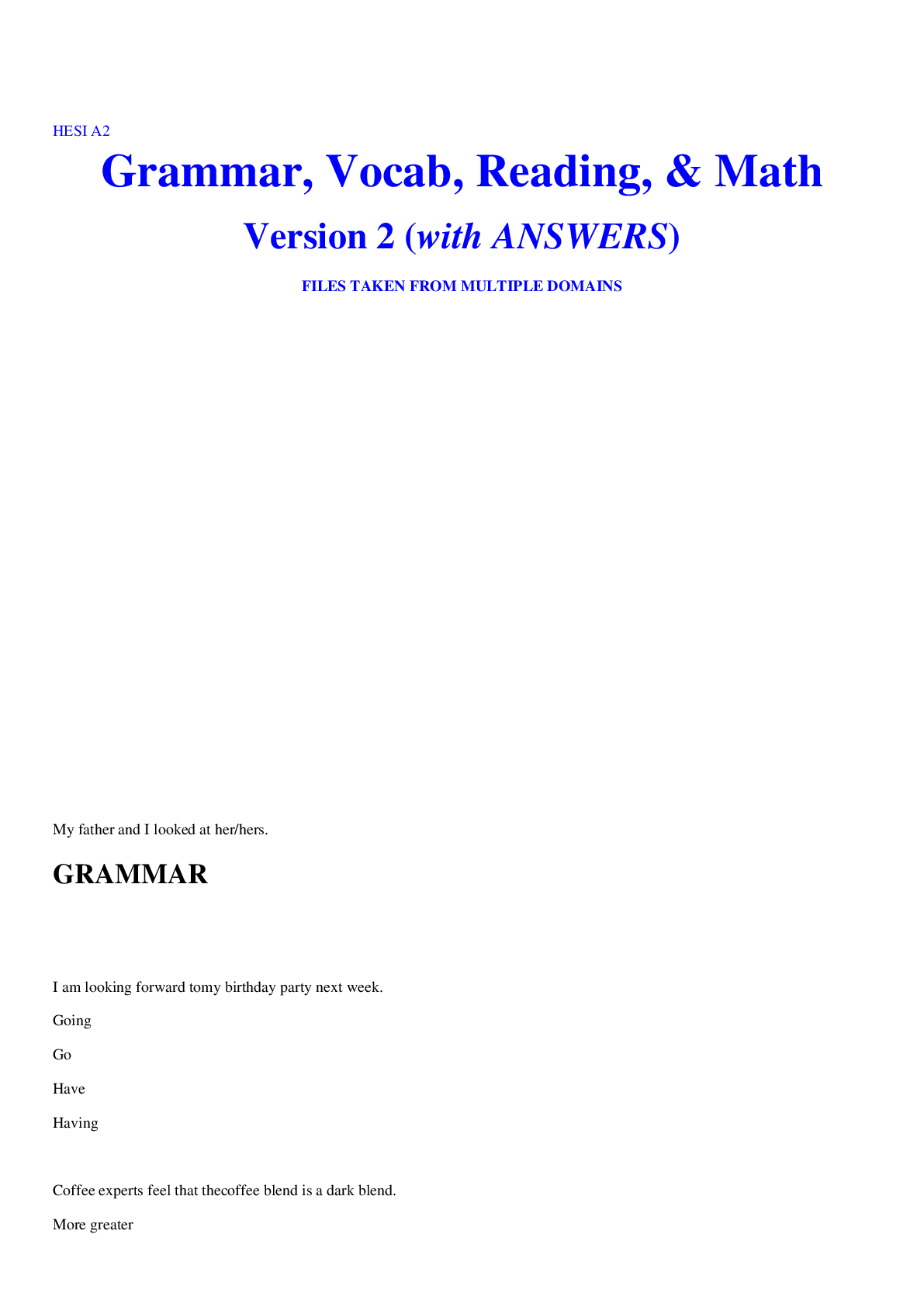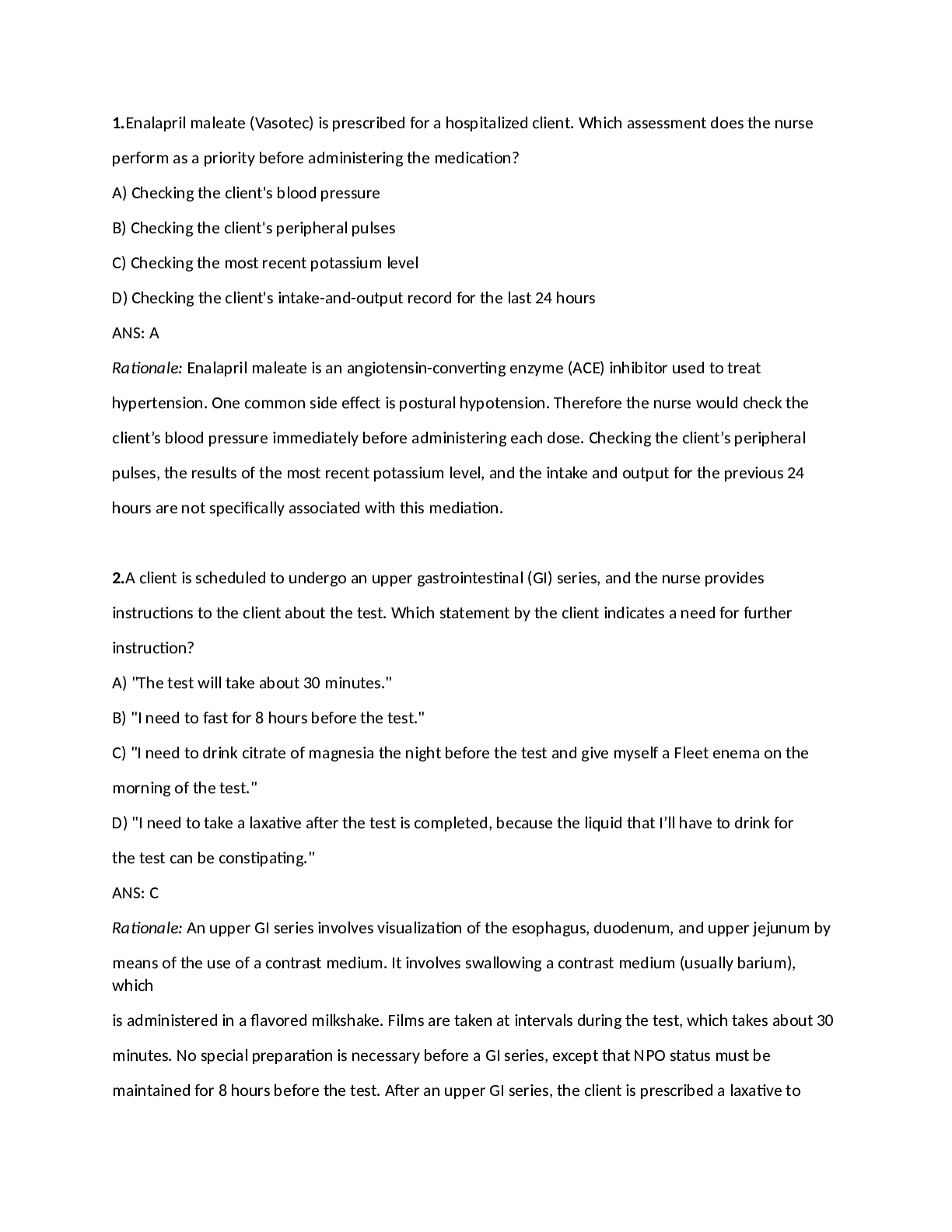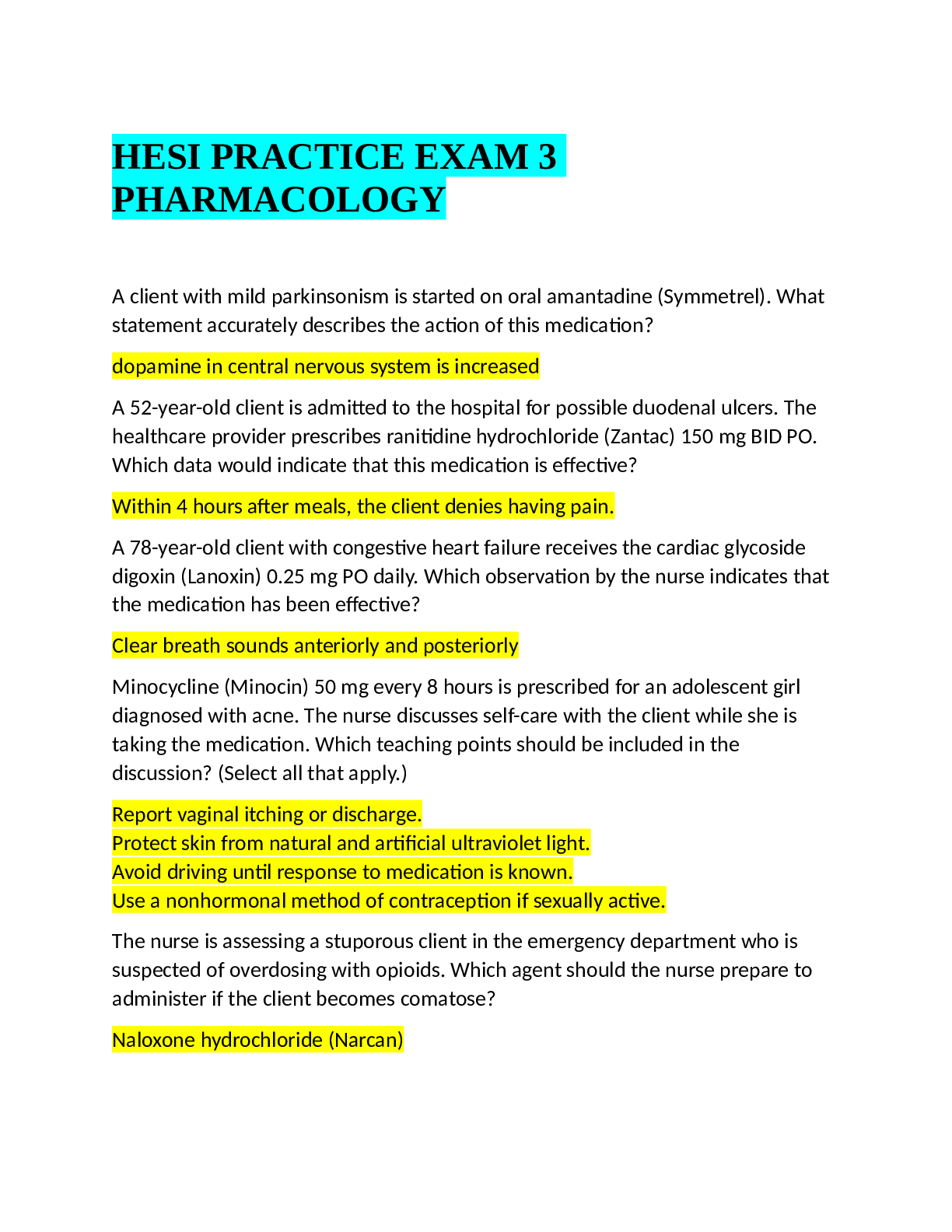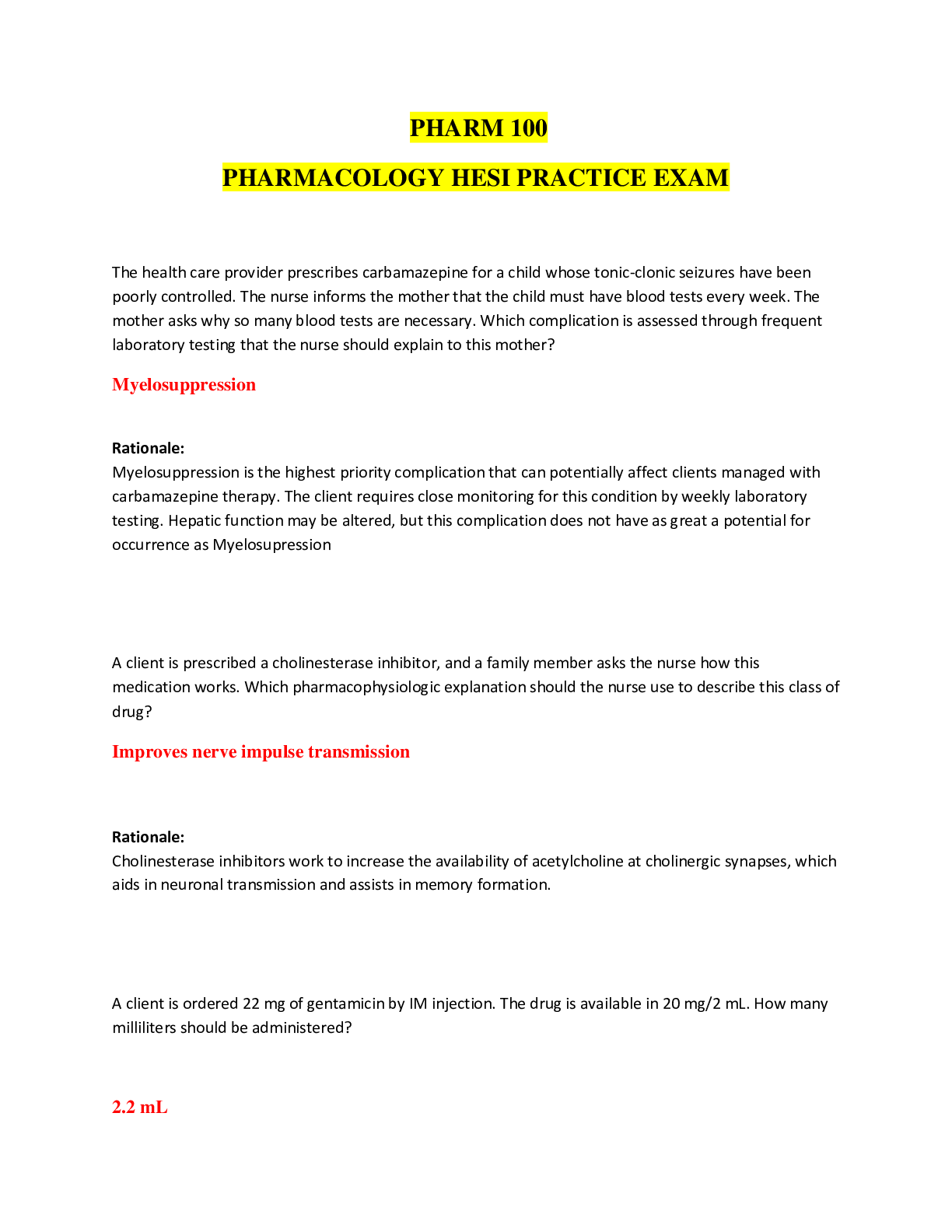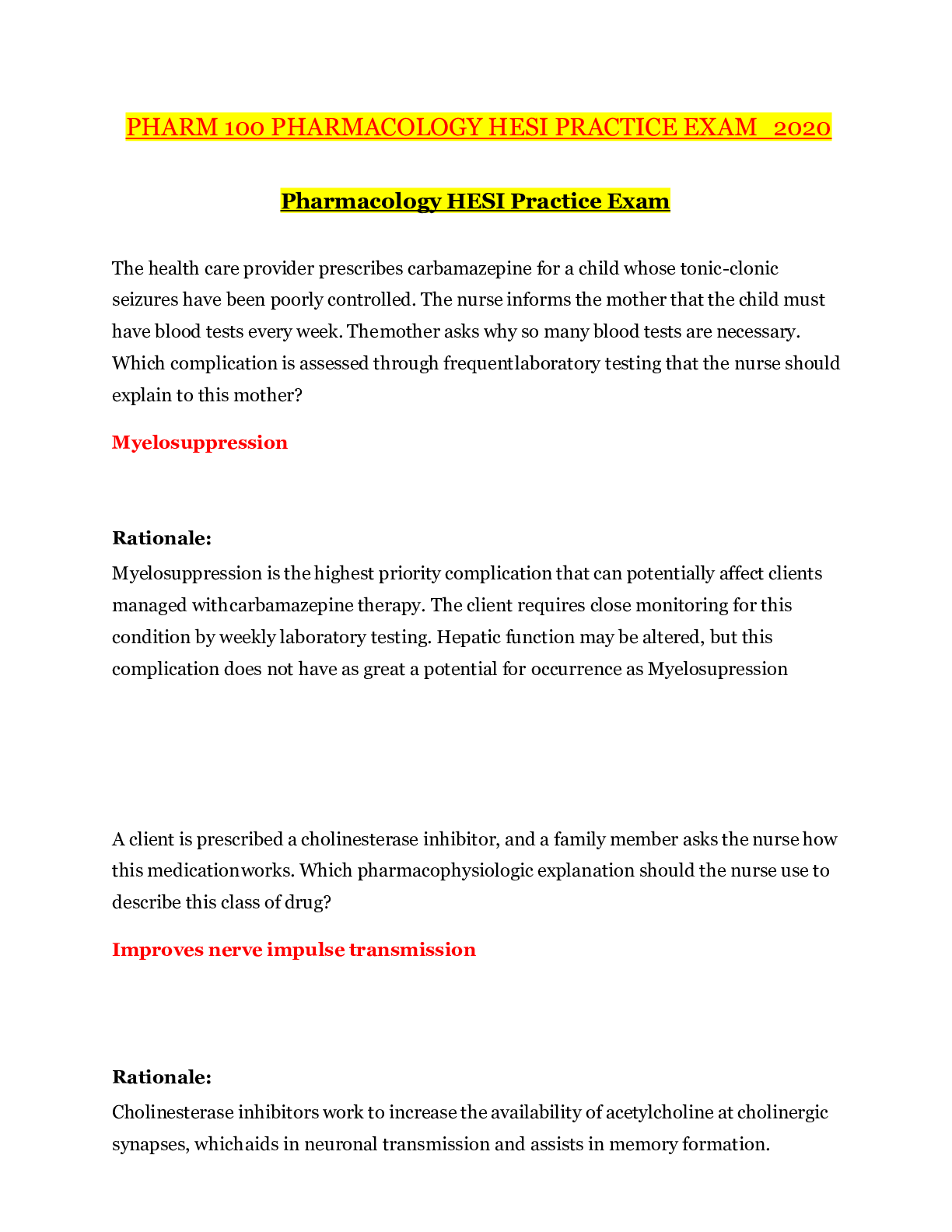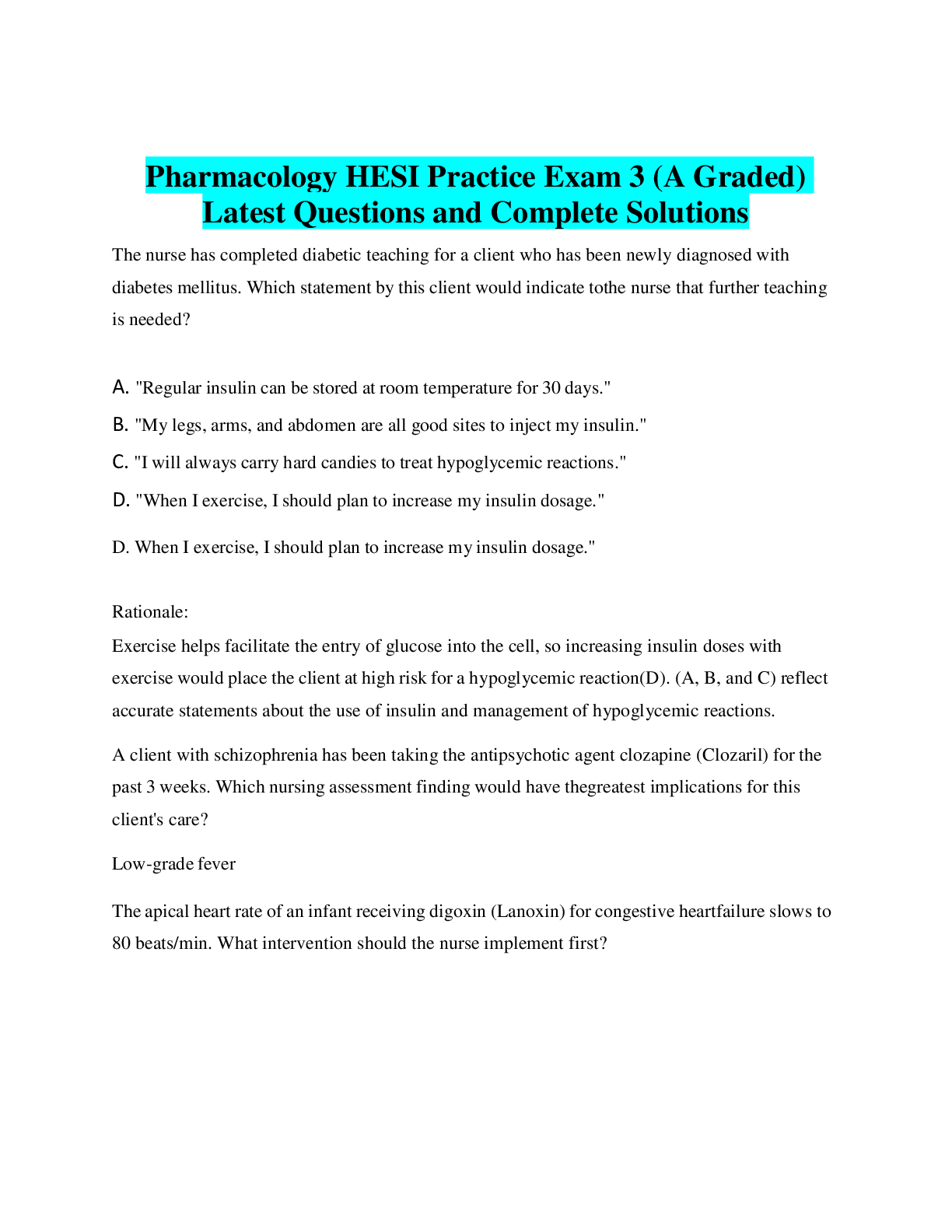Pharmacology > HESI > HESI Pharmacology Practice Exam Q&As |PHARM 100 - Pharmacology HESI Practice Exam (All)
HESI Pharmacology Practice Exam Q&As |PHARM 100 - Pharmacology HESI Practice Exam
Document Content and Description Below
Pharmacology HESI Practice Exam The health care provider prescribes carbamazepine for a child whose tonic-clonic seizures have been poorly controlled. The nurse informs the mother that the child mus... t have blood tests every week. The mother asks why so many blood tests are necessary. Which complication is assessed through frequent laboratory testing that the nurse should explain to this mother? Myelosuppression Rationale: Myelosuppression isthe highest priority complication that can potentially affect clients managed with carbamazepine therapy. The client requires close monitoring for this condition by weekly laboratory testing. Hepatic function may be altered, but this complication does not have as great a potential for occurrence as Myelosupression A client is prescribed a cholinesterase inhibitor, and a family member asks the nurse how this medication works. Which pharmacophysiologic explanation should the nurse use to describe this class of drug? Improves nerve impulse transmission Rationale: Cholinesterase inhibitors work to increase the availability of acetylcholine at cholinergic synapses, which aids in neuronal transmission and assists in memory formation. A client is ordered 22 mg of gentamicin by IM injection. The drug is available in 20 mg/2 mL. How many milliliters should be administered? 2.2 mL Rationale: (22 mg/20 mg) × (x mL/2 mL) = 22x = 40 x = 2.2 mL In addition to nitrate therapy, a client is receiving nifedipine, 10 mg PO every 6 hours. The nurse should plan to observe for which common side effect of this treatment regimen? Hypotension Rationale: Nifedipine reduces peripheral vascular resistance and nitrates produce vasodilation,so concurrent use of nitrates with nifedipine can cause hypotension with the initial administration of these agents. Which response bestsupports the observations that the nurse identifies in a client who is experiencing a placebo effect? Psychological response to inert medication Rationale: The placebo effect is a response in the client that is caused by the psychological impact of taking an inert drug that has no biochemical properties. A placebo effect can be therapeutic, negative, or ineffective but provides no cure or benefit to the client's progress. The placebo effect may evoke behavioral changes but does not affect neurochemical psychotropic changes. Malingering and drug seeking are behaviors that a client exhibits to obtain treatment for nonexistent disorders or obtain prescription medications. A 42-year-old client is admitted to the emergency department after taking an overdose of amitriptyline in a suicide attempt. Which drug should the nurse plan to administer to reverse the cardiac and central nervous system effects of amitriptyline? Sodium bicarbonate Rationale: Sodium bicarbonate is an effective treatment for an overdose of tricyclic antidepressantssuch as amitriptyline to reverse QRS prolongation. A 67-year-old client is discharged from the hospital with a prescription for digoxin, 0.25 mg daily. Which instruction should the nurse include in this client's discharge teaching plan? Take and record radial pulse rate daily. Rationale: Monitoring pulse rate is very important when taking digoxin. The clientshould be further instructed to report pulse rates <60 or >110 beats/min and to withhold the dosage until consulting with the health care provider in such a case. Vision change is an indication of drug toxicity, and the client should be instructed to report this immediately. A 55-year-old client was diagnosed with schizophrenia 5 years earlier. Numerous hospitalizations have occurred since the diagnosis because of noncompliance with the prescribed medication regimen. Which drug might work best for this particular client? Fluphenazine decanoate Rationale: Fluphenazine, an antipsychotic drug that can be given IM, has a rapid onset (1 to 2 hours) and a long duration of action (up to 3 or 4 weeks), so it would be the drug of choice for a noncompliant psychotic client. Chlorpromazine HCl is an antipsychotic drug used to treat schizophrenia and is usually administered PO (IM doses are short-acting). The client must be compliant in taking this drug for it to be effective. Lithium carbonate is most effective with manic and depressive bipolar affective disorders. Diazepam is an anti-anxiety drug and would not be effective for a psychotic disorder. A client is being discharged with a prescription for sulfasalazine to treat ulcerative colitis. Which instruction should the nurse provide to this client prior to discharge? Drink at least eight glasses of fluid a day [Show More]
Last updated: 1 year ago
Preview 1 out of 41 pages
Instant download
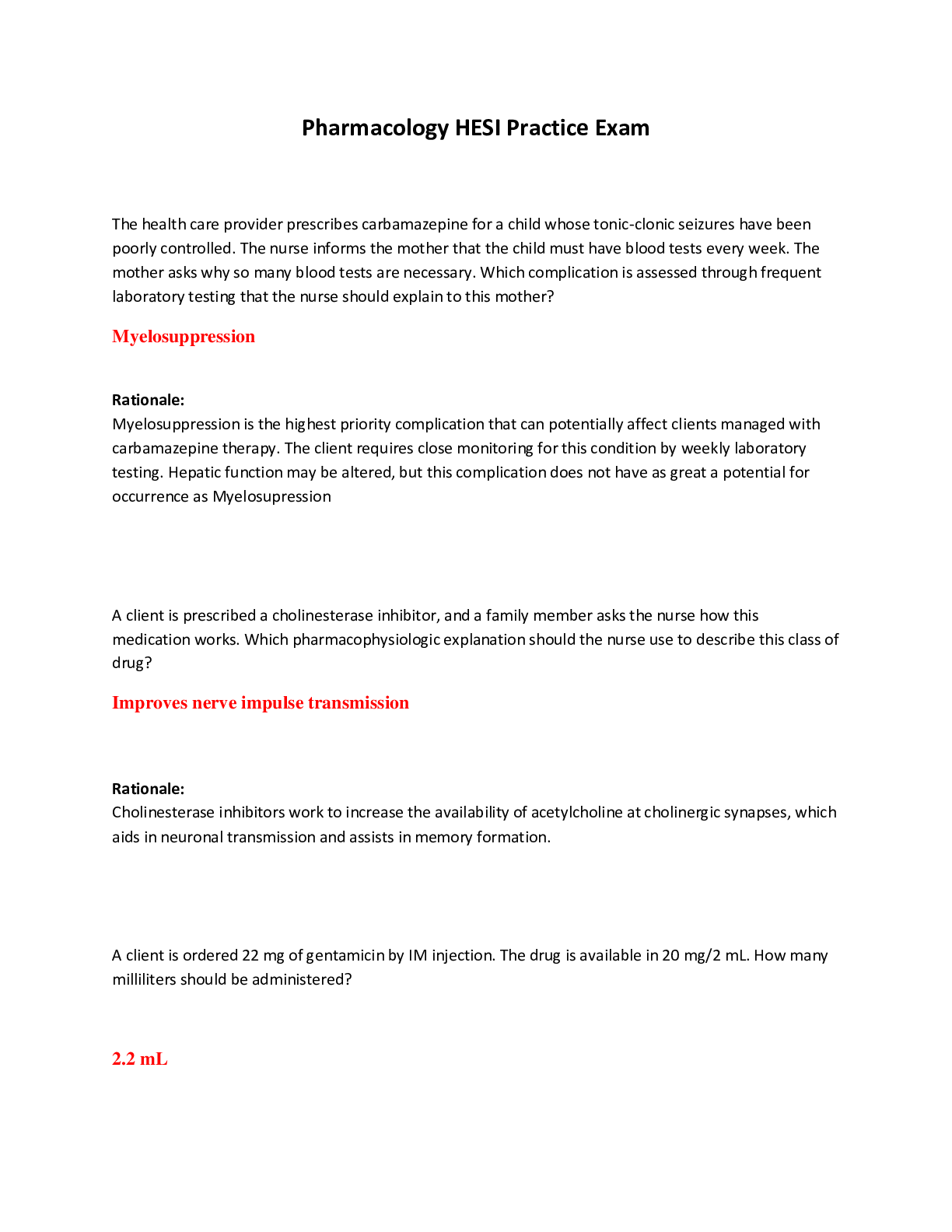
Buy this document to get the full access instantly
Instant Download Access after purchase
Add to cartInstant download
Reviews( 0 )
Document information
Connected school, study & course
About the document
Uploaded On
Apr 20, 2021
Number of pages
41
Written in
Additional information
This document has been written for:
Uploaded
Apr 20, 2021
Downloads
0
Views
29

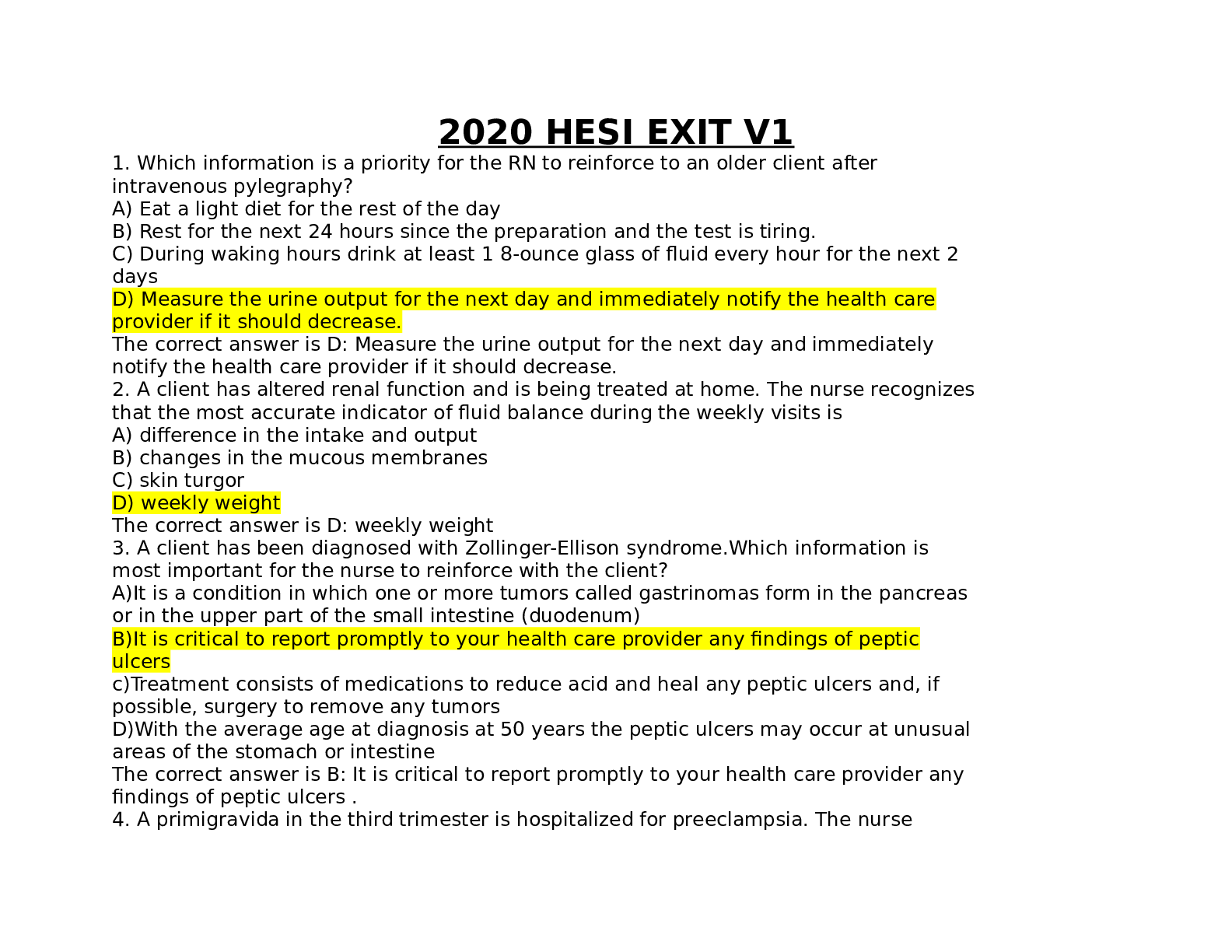
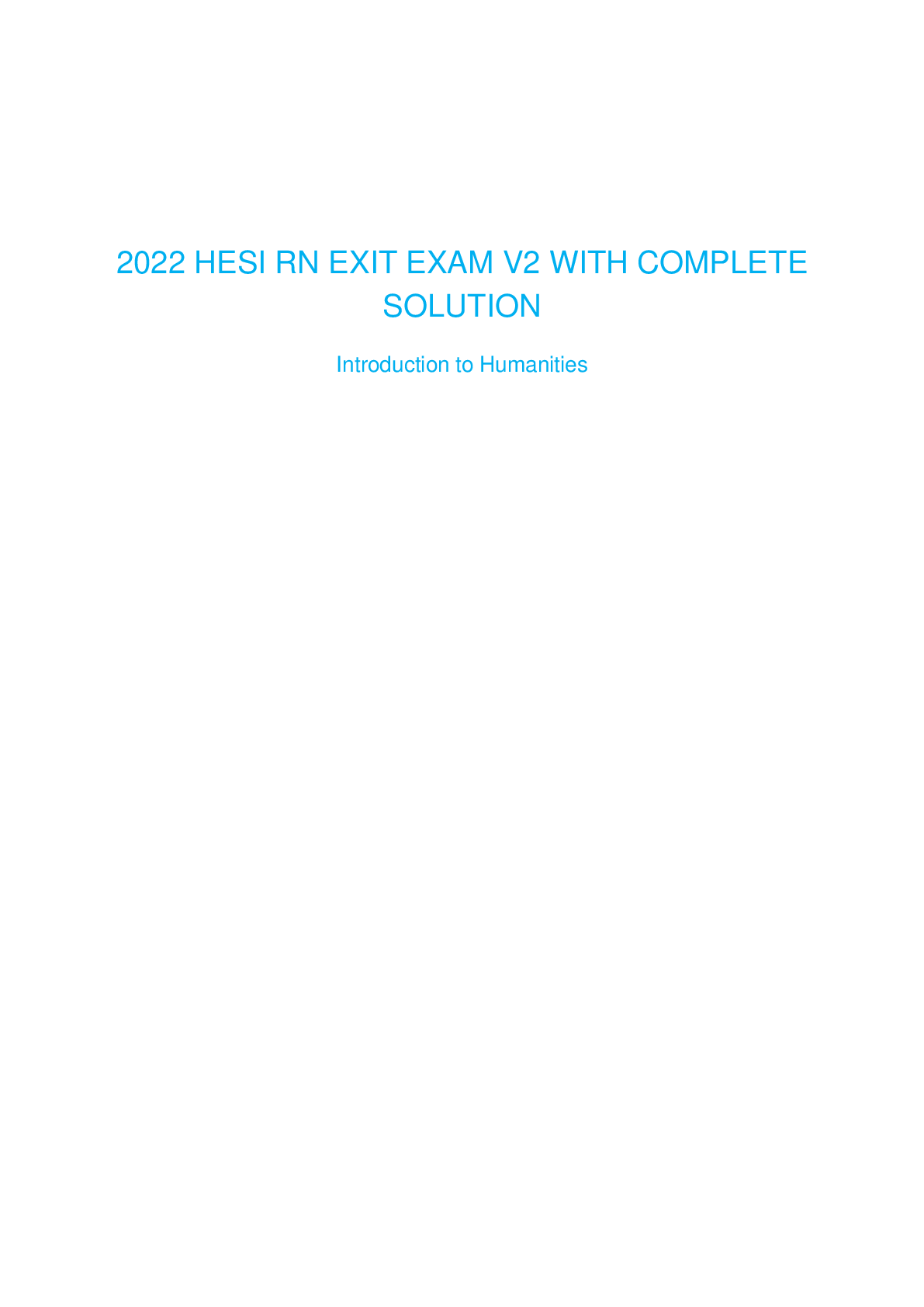
.png)
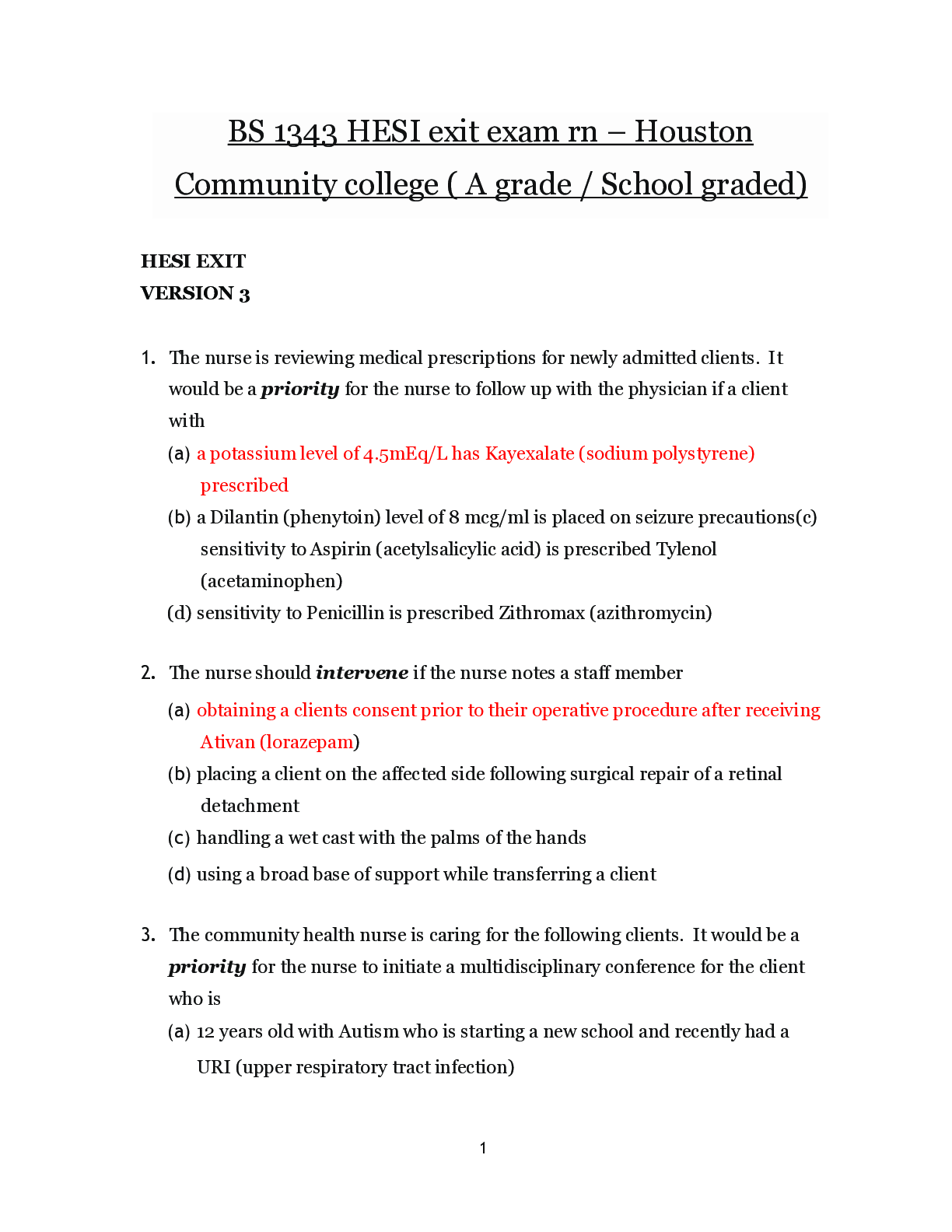
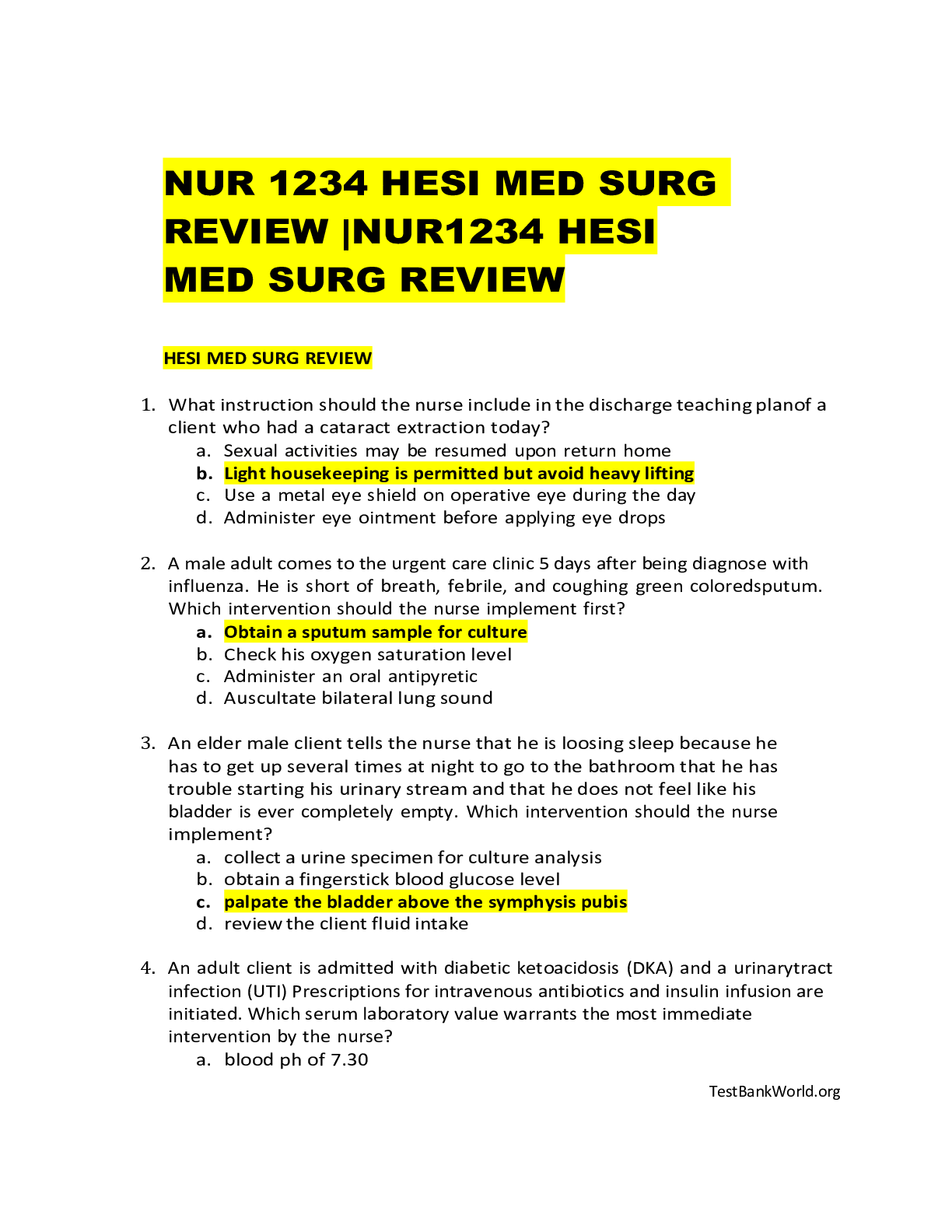
 Graded A.png)
